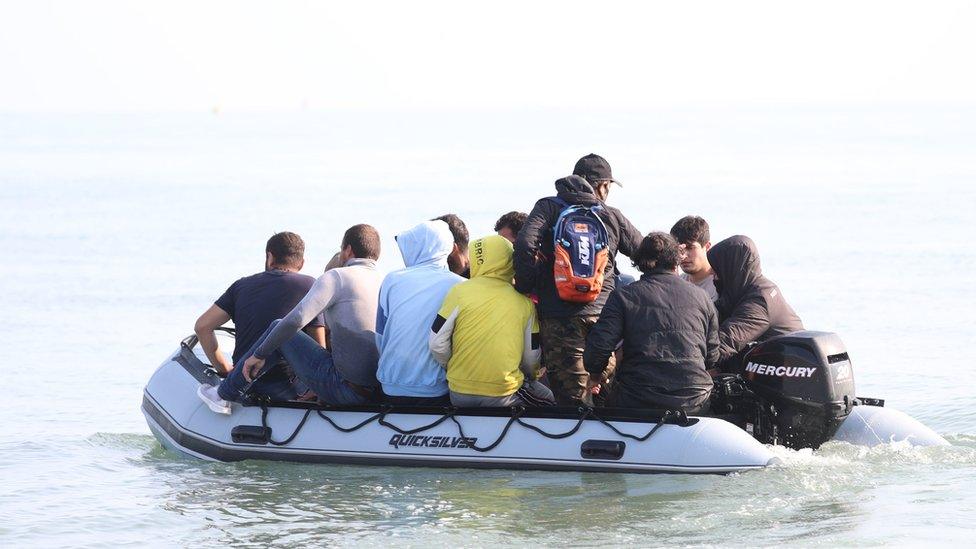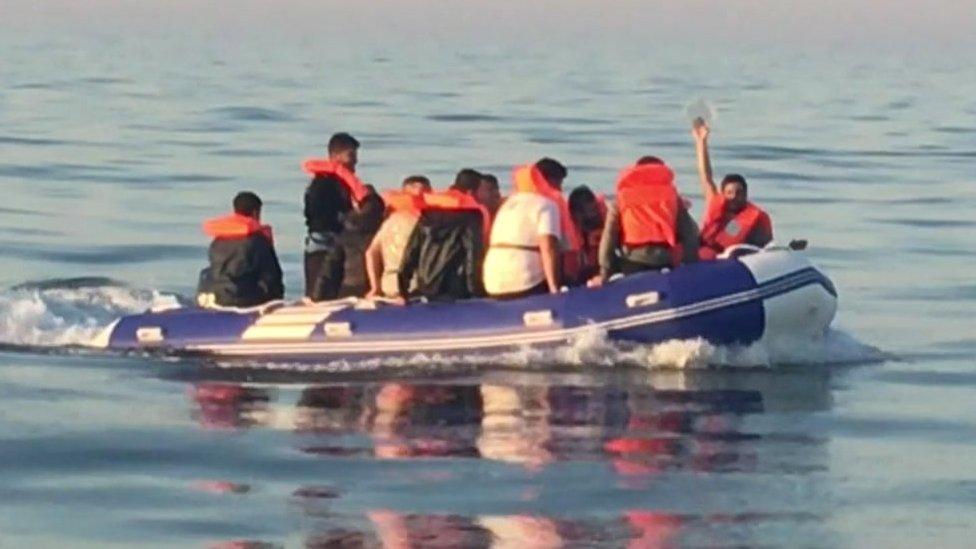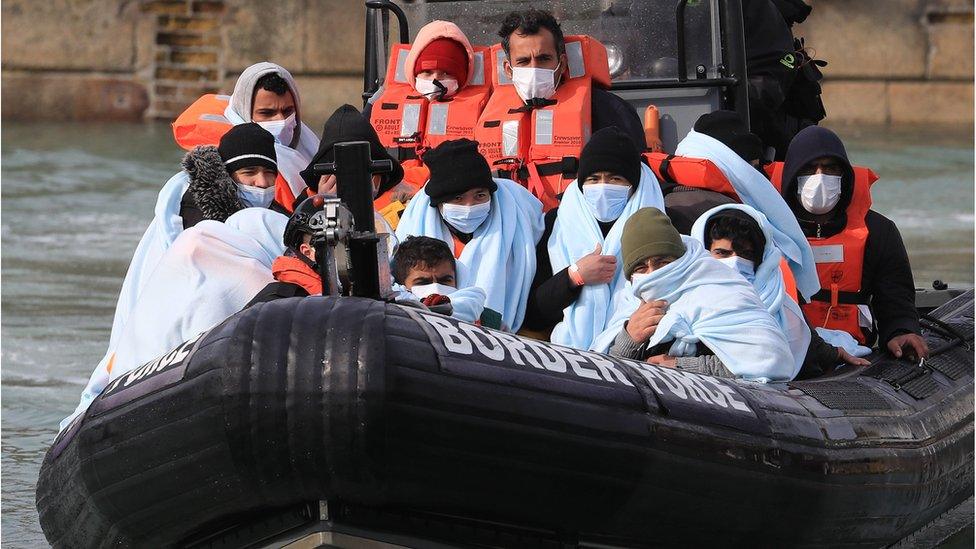Channel crossings: 'No agreement' on turning migrant boats back
- Published

The Commons Home Affairs Committee heard there had been more than 8,000 crossings in 2020
Turning migrant boats in the Channel back to France could be a "critical component" in tackling the surge in crossings to the UK, a minister has suggested.
The Commons Home Affairs Committee heard the number of crossings had increased "alarmingly".
Minister for immigration compliance Chris Philp said the French government was yet to agree on any tactic.
He added there had been more than 8,000 crossings in 2020.
In 2019 there were 1,844 crossings and 299 in 2018.
Asked to confirm that no agreement had been reached with France for its authorities to intercept migrant boats and turn them back to prevent them travelling to the UK, he said: "That is currently correct.
"The French operational posture on the water is that they don't forcibly intercept migrant boats.
"They will rescue them if they start sinking and if the migrants request assistance but they do not currently forcibly intercept migrant boats while in French waters."
'Critical component'
Mr Philp said interceptions at sea "could be a critical component of completely stopping this route" but it was also important to have action on land and return those who successfully make the trip.
The UK Government believed there was "lawful basis for that kind of activity", he said.
Previously, ministers have said their French counterparts believe this would break maritime law.
Mr Philp said the matter had been raised with the French government, adding that "on land" its authorities had "stepped up enormously in the last few months and interceptions on beaches".
Dan O'Mahoney, the Home Office's Clandestine Channel Threat Commander, told the committee they had been "negotiating very hard with the French".
In total, the UK has spent £192 million on illegal migration-related activities in France since September 2014, he said, adding the majority of this had gone towards infrastructure for border controls and security in and around Calais.
Related topics
- Published28 November 2020

- Published11 November 2020
